Getting Beyond Your Daily Life and Into God’s Plan
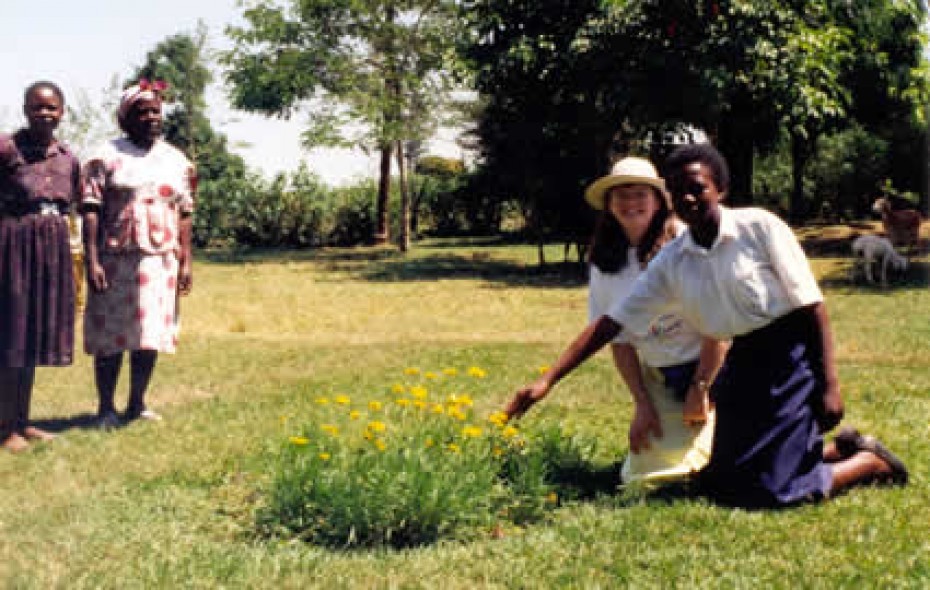
God ordained a decision I made in 1986 to sponsor Jewel, a small decision really. It was ordained by God, not only to bless Jewel. but to bless me.
Continue Reading ›Vastly Different Lives Connected in Christ
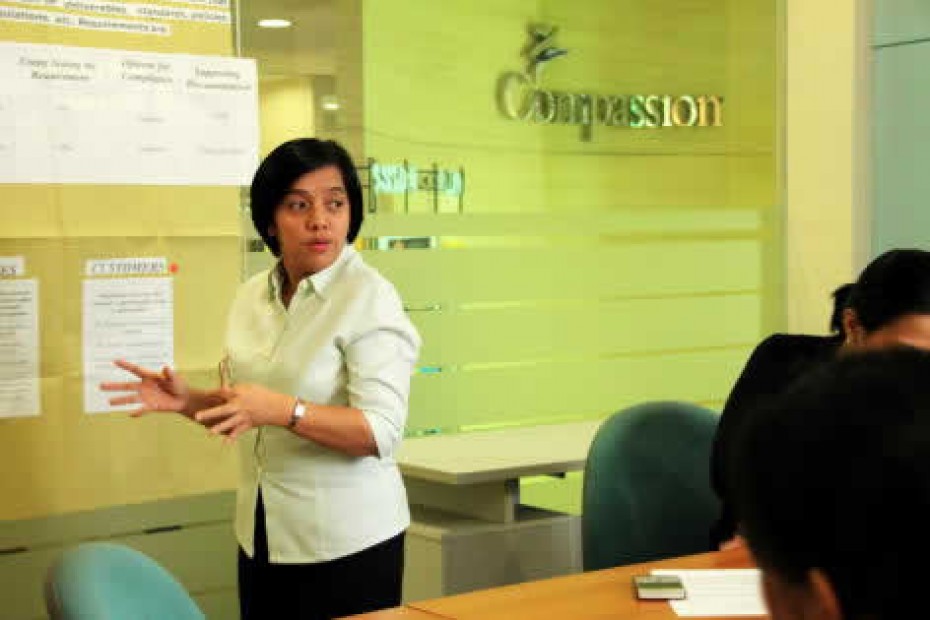
We speak different languages. We live in separate time zones. We follow different customs and practices. We lead such vastly different lives but we are all connected by the fact that Christ dwells in our hearts.
Continue Reading ›
Representing the Cheetah Generation
I’m grateful that the man overseeing Compassion’s work in Africa believes in my sponsored children. And, I’m thankful that the church staff will continue to breathe life into them and help them run with the speed of cheetahs.
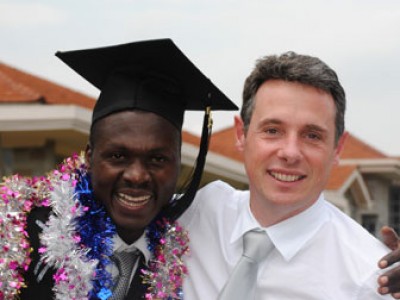
Just Believe
I know that the only way I can express my gratitude to my sponsors for helping me as a child and for reconnecting with me to support and encourage me even more is through hard work.
Counting Malaria Out
At the center of Riaciina village in Kenya lies a semi-permanent house, traditionally constructed. The walls of the house are made of mud and smoothly smeared with cow dung. The roof is thatched with iron sheets. There is a big gap between the mud and iron sheets. Mosquitoes penetrate freely day and night. 
This is the home of Amina, a toddler enrolled in the local Child Survival Program (CSP). At the back of the homestead lies waste from the nearby kitchen. On the other side of the home are thick bushes of indigenous trees.
As the CSP specialist visited the mother, mosquito bites could be noted on the face of the child. Throughout the session, the TEEEE! TEEEE! sound of mosquitoes could be heard.
In some countries, mosquitoes are just nuisance, but in Riaciina, mosquitoes pose a deadly threat. Mosquito-borne malaria is the major killer disease in the area.
Riaciina village lies in the semi-arid part of Kenya on the extreme southern slopes of the largest mountain in Kenya, Mount Kirinyaga. The occupants are mainly the Ambeere and the Akaamba people whose primary work is farming and fishing. (more…)
An Oasis of Talent in the Mire of Mathare Valley
The Saturday program at Mathare Community Outreach begins by focusing on the spiritual development of the children. It starts with devotions and worship and is followed by 30 minutes of small group Bible study.
For the children who have accepted Christ as their Savior, the center staff conduct a discipleship class which occurs during the Bible study.
In addition to the spiritual development of the children, the center has programs to address the physical, social and economic needs of the children.
The key factor in creating a stable economic future for the children is education; education is the key.
But beyond focusing on excellence in school, the center staff help identify and develop the talents of the children, musically and artistically, so they have even greater opportunities to succeed.
The center has a cooking program, choir and music program and drama team and works with the children to develop their public speaking abilities.
Here’s a sample of what the kids are producing.
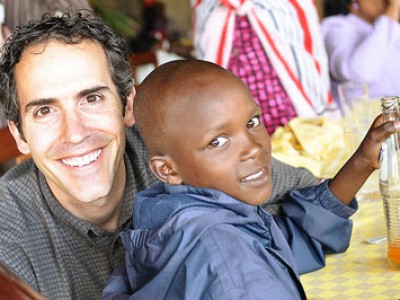
Being a Sponsor is Not Easy
Dreams are made with sweat and discomfort, effort and uncertainty and moments of success and failure. They’re kneaded together with sacrifice and generosity and held together with drive, perseverance and surrender.
Relationships are like that too. And so is sponsorship.
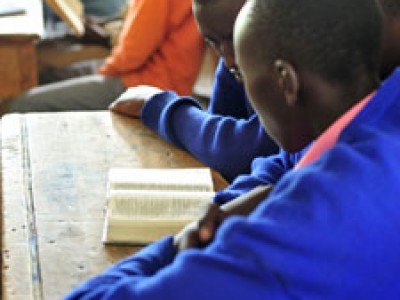
What Does My Sponsored Child Learn at the Child Development Center?
By attending classes at his or her child development center your sponsored child receives age-appropriate instruction in four main areas: spiritual, cognitive, physical and socio-emotional.
At KE-630, Good Shepard Isinya Student Center, all the children begin their Saturday at 9 a.m. with spiritual learning.
I Met An Orphan Today
What follows is an excerpt from a blog post we recommend you read. It’ll move you.
We sampled the post selectively. There’s emotional stuff in between the samples. Promise.
I met an orphan today.
I don’t think I’ll ever forget her face.
. . .
I sat down on a bench and she scooted towards me. “What is your name?”
In perfect English, “My name is Susan. I am 12.”
She looked at me. I mean, really, looked into my eyes with a question in hers and then she blurted out, “Can I touch your hair?”
. . .
She tried braiding my hair and after a few minutes she gave up saying, “I think something is wrong with your hair. I can’t braid it.” Oh Susan, you are a wise one.
. . .
Again, her eyes found mine and she questioned, “Can I touch your skin? It is so white.”
This time I could only nod as she gently touched my arms and then my legs peeking out from my cropped pants.
“You are the first white woman I have touched,” she said in an almost hushed voice.
Read all of Kristen Welch’s post at We Are THAT Family.
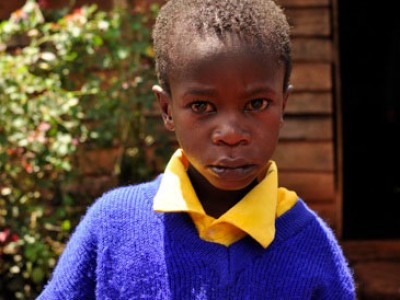
Confessing to Something That Probably Means I’m Human
The poverty in my life is emotional and spiritual. The poverty in the lives of the kids you sponsor and the kids we’re meeting here in Kenya is that and more.
Tending a Kitchen Garden: Lessons From a Child Survival Program Mom
What does a kitchen garden have to do with increasing the chance a child lives to see age five?
Kitchen gardens are a part of the “empowerment training” that moms and caregivers receive at the Kawangware Child Survival Program (KEC28), and Caroline is a mom who is benefiting from this training.
Outside of her 10′ x 10′ home, Caroline maintains a kitchen garden, something she learned to do in the Child Survival Program.
The garden provides food for her six-member family and requires tending to make sure bugs don’t destroy the vegetables, along with the hope she and her husband have for something more. When we ended our home visit with Caroline and her family yesterday,
“her husband proudly told us that his wife was working hard and that together they were changing their situation. He thanked us for coming to visit their house that they lived in “for now.” He said “for now” because he told us that he knew that they wouldn’t be there forever. The tools they had and the skills they learned were helping them break free from the poverty that surrounded them.”
Read more of Caroline’s story on Brad Ruggles blog – Learning How to Live.
Support a Child Survival Program for $20 a month and you can help empower moms like Caroline.
Empowering Moms With Charcoal Dust and Dirt
One of the ways that the Child Survival Program empowers mothers is by offering literacy and economic training to help them better provide for their families. 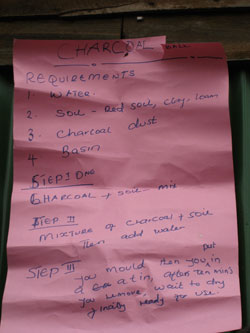
Jackline is a mom at the Kawangware Child Survival Program which is part of the Kawangare Child Development Center.
The economic training she received taught her to make charcoal from charcoal dust and dirt and then use the charcoal to roast corn to sell on the side of the road.
Roasting the corn allows Jackline to make about $1 a day to feed her two children, including 14-month old Flavian.
We visited the Kawangware Child Survival Program today, met Jackline and watched her demonstrate the skill that helps her provide for her children.
We also met Caroline, another mom in the program. She was excited to show us the income generating activity she was taught. You can read Caroline’s story on Brad Ruggles blog – Learning How to Live.
Support a Child Survival Program for $20 a month and you can help empower moms like Jackline and Caroline.

 I don’t think I’ll ever forget her face.
I don’t think I’ll ever forget her face.
